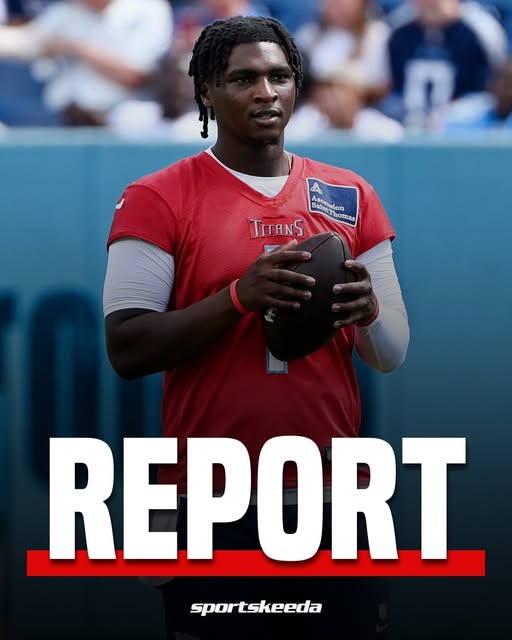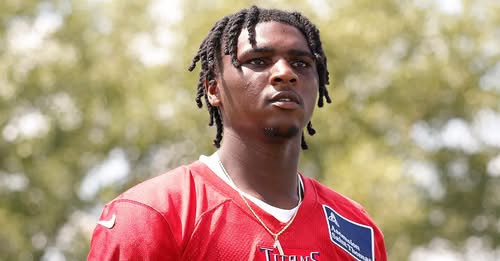Arch Manning Confronts Harsh Truths About His Future Amid Sky-High Expectations
Arch Manning has been one of the most closely watched names in college football since his high school days. The moment he committed to Texas, the media storm surrounding him intensified. With a last name synonymous with NFL greatness and college football royalty, the expectations have been astronomical. But as the new season draws near and Manning takes on a more prominent role as Texas’ starting quarterback, he’s facing something he hasn’t had much of until now—a tough reality check.
For years, the conversation around Arch Manning has been filled with praise and potential. Analysts hailed him as the next great quarterback. Fans imagined national championships and top draft status. But with the 2025 season on the horizon, a shift in tone has begun. Critics, former players, and even some fans are beginning to push back on the narrative that Manning is already destined for greatness. Instead, they’re asking tougher questions, grounded in performance, readiness, and results—not just legacy.
One of the biggest points of contention is whether Manning is actually prepared to meet the enormous expectations placed on him. While he’s had moments of brilliance and has shown strong fundamentals, his in-game experience is still limited. Much of his early playing time came against weaker competition—teams that didn’t exactly reflect the level of defensive complexity or talent he’ll face in the SEC. And that’s where some analysts are drawing a line. They’re saying it’s time to move beyond the Manning name and start evaluating Arch based solely on what he has shown on the field.
It’s not that people don’t believe he can be great. It’s that many believe he hasn’t proven enough yet to justify the hype. In this sport, potential can only take you so far. Eventually, production matters. And when you’re the starting quarterback for a program like Texas—especially with its recent leap into the SEC—you don’t get many games to find your footing. Every snap, every decision, and every mistake is magnified.
This shift in perception hasn’t just come from armchair quarterbacks online. It’s been echoed by former players and professional analysts—individuals who understand what it takes to succeed at the college level and beyond. Some have questioned why Manning didn’t beat out Quinn Ewers for the starting job sooner. Others have wondered if his rise to starter this season is due more to timing than dominance. They point out that if Manning is truly a once-in-a-generation talent, it should have been more obvious on the depth chart from day one.
Manning now finds himself at a crossroads. On one hand, he has the full support of the Texas coaching staff, and the team is building around him. On the other hand, the national spotlight is unforgiving, and any stumble—especially early in the season—will be met with scrutiny. Texas has a brutal schedule. They’ll face powerhouse defenses, loaded SEC opponents, and high-stakes games with playoff implications. There will be no easing into the role. Manning must deliver right away.
Another layer to this reality check is the conversation around the NFL. Some had already penciled him in as a future first-round pick. But even that prediction is starting to be walked back. Analysts are now urging caution. They’re reminding everyone that the NFL is not in the business of drafting names—they draft proven talent. And as of now, Arch Manning is still an unproven commodity at the college level. There’s a growing belief that unless he has a breakout season filled with wins, stats, and big-time throws against elite competition, he may not even declare for the draft next year.
Adding further complexity is the evolving world of name, image, and likeness (NIL) deals. Manning is already one of the highest-earning athletes in college sports through endorsements and sponsorships. That means the financial incentive to go pro early isn’t as urgent as it once was. With that cushion, he has the option to stay longer, develop further, and enter the draft when he’s truly ready—physically and mentally.
And that might not be such a bad thing.
There’s still a lot to admire in how Manning is handling this journey. Despite the scrutiny and the constant comparisons to his famous uncles, Peyton and Eli, he’s kept his head down and worked. He’s added muscle. He’s improved his mobility. He’s learned the offense inside and out. Coaches praise his leadership and work ethic. Teammates speak highly of his calm presence and command in the huddle. The groundwork is being laid for something special. But even with all of that, the reality remains—nothing is guaranteed.
In some ways, the tough conversations around Manning are a necessary recalibration. They strip away the assumptions and force a more grounded view of what he’s achieved so far. They challenge fans to see Manning as a developing player rather than a finished product. They serve as a reminder that every quarterback, no matter how famous his family is, must prove himself on the field. And perhaps most importantly, they help Arch Manning himself stay centered, focused, and hungry.
That hunger is going to be crucial. Texas is not a program that tolerates long rebuilding periods. The fans want results. The boosters want trophies. The coaching staff wants to justify their decisions. If Manning delivers, he’ll go down as a legend. If not, the criticism will only intensify. He’s stepping into a role that’s about far more than just executing plays. It’s about carrying a legacy forward, about elevating a team that believes its time is now, and about proving that he’s not just the next Manning, but his own kind of quarterback altogether.
There’s no denying the pressure that comes with that. But it’s also what makes this moment so compelling. College football is built on these stories—on the rise and fall of young stars, the clash between expectation and performance, the transformation of boys into leaders. Arch Manning is now the central figure in one of those stories. How he handles it will define not just his season, but potentially his entire football future.
As the season opener approaches, eyes across the country will be glued to his every move. There will be overreactions, both good and bad. There will be moments of brilliance and moments of struggle. And through it all, Manning will be asked to grow up fast, to mature under pressure, and to stay grounded while the world around him spins in chaos.
That’s the job. That’s the cost of greatness.
If Manning can embrace that, if he can use the criticism as fuel rather than discouragement, then this reality check might be the best thing that’s happened to him so far. It’s a chance to reset expectations, to silence the noise, and to focus on the only thing that really matters—getting better every day and helping his team win.
So, while the headlines may sound harsh and the opinions may seem brutal, they’re part of the game. They’re reminders that college football isn’t about fairytales—it’s about proving yourself every Saturday. And now, it’s Arch Manning’s turn to do just that. The future is still his to shape. But he’ll have to earn it, one play at a time.



